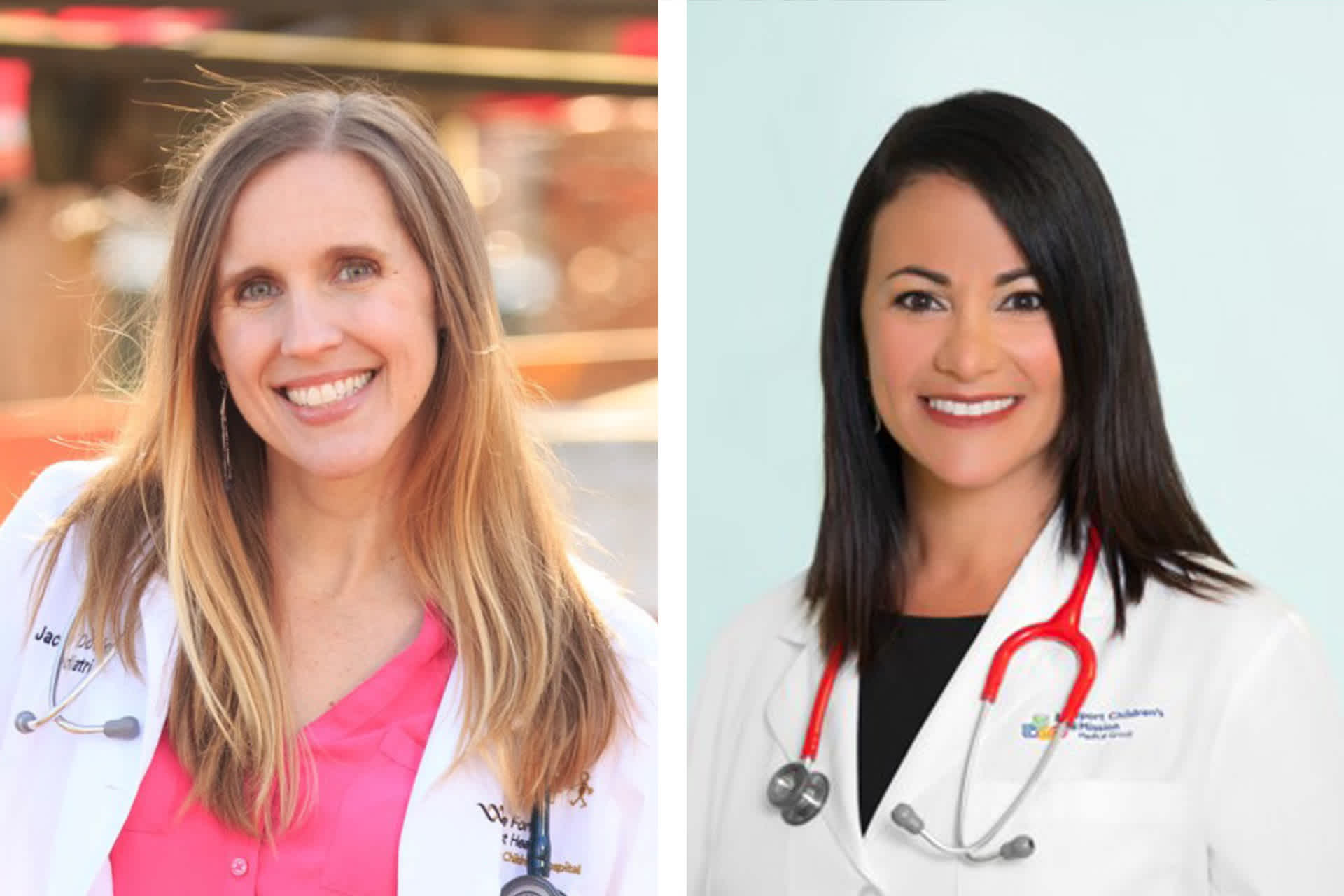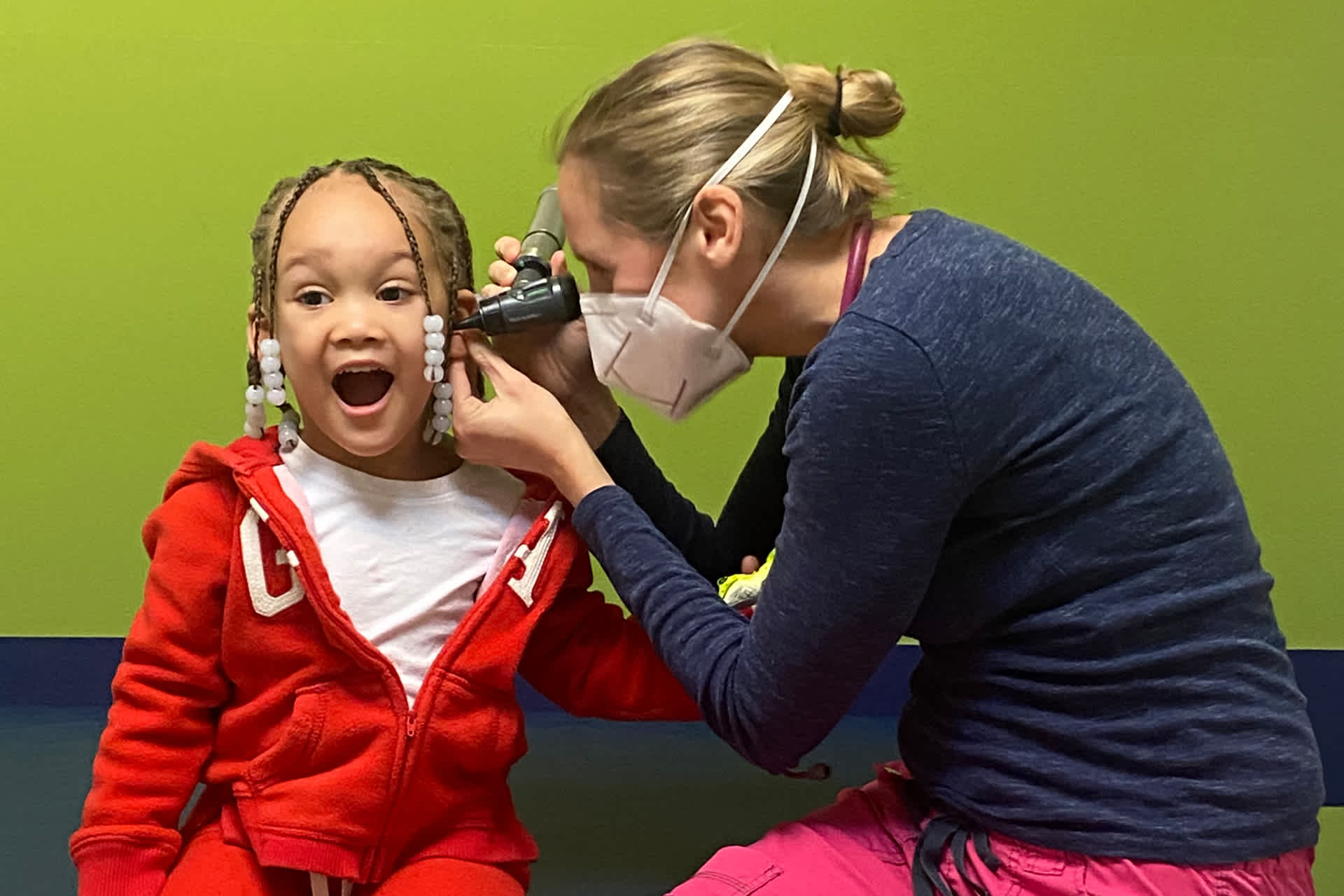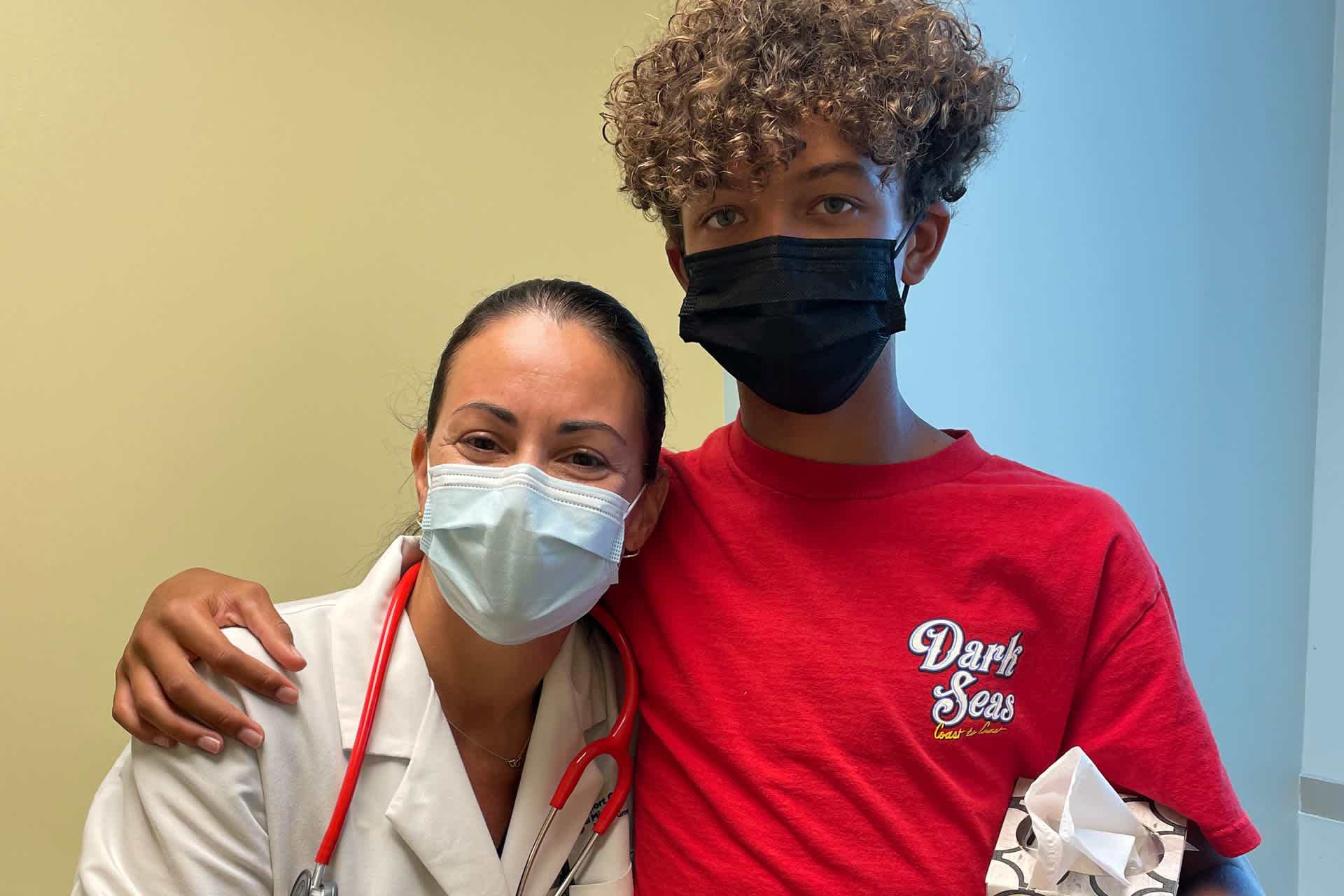Caring for Kids

You most likely visit a pediatrician at least once per year. Pediatricians treat kids for things like colds and rashes, and they conduct checkups. They give kids shots, teach healthy habits, and even do weird things such as pull out bugs or Legos that toddlers have put in their ears.
So what does it take to be a pediatrician? Your Hot Job spoke to two experts to get the scoop on this popular career.
Meet the Pediatricians
Dr. Jaclyn Dovico began her professional career as an investment banker. She soon decided that the job was not right for her, so she went back to school to become a pediatrician. She has been one for more than five years. She lives in North Carolina.
Dr. Johanna Rodriguez-Toledo knew she wanted to be a pediatrician since she was 12. She grew up in Puerto Rico and was the first in her family to graduate from college. She has worked as a pediatrician in hospitals and in private practice. Dr. Rodriguez-Toledo now lives and works in Southern California.
Some Good Advice
Think you want to be a pediatrician? Here’s some good advice:
Love being around kids and families. Pediatricians take care of kids from just after birth until adulthood. Although children are the patients, parents and/or guardians play a big role in how doctors are able to care for the kids. “I get to be part of all of the families that I treat,” Dr. Dovico says. “I experience all the joy and milestones, and sometimes heartaches too, but that’s what makes it so rewarding.”
Love to learn. Pediatricians often spend at least 11 years in school before they can practice: four years in college, four years in medical school, and at least three years in residency. There are also always new breakthroughs in medicine. You have to stay up to date in order to give your patients the best treatment and care.
Be prepared to work hard. Medical school takes hard work. “You don’t have to be super bright, but you do have to be dedicated,” Dr. Rodriguez-Toledo says. “You have to read a lot and put in a lot of hours. But even though it is hard work, it is worth it to make a difference in the lives of kids.”
Enjoy being silly and having fun. Sometimes kids are scared to visit the doctor. Acting silly, singing songs, and making kids laugh can help them feel relaxed. Both doctors say dressing up for holidays, such as Halloween, is a lot of fun!

You May Not Know . . .
Did you know these facts about pediatricians?
There are many types of pediatricians. Most pediatricians are general practitioners, but some prefer to focus on one type of care. For example, a pediatric neurologist focuses on disorders of the brain, spine, muscles, and nervous system. A pediatric cardiologist focuses on kids who have heart problems.
Pediatricians read and write a lot. Pediatricians read each patient’s chart before a checkup or treatment. The chart tells a kid’s medical history. After that, the doctors write notes about the visit and record those in the chart. Some pediatricians can see 30 patients per day. That’s a lot of reading and writing!
A pediatrician’s main goal is preventative health. “My job is more than just seeing whether a child is sick or not sick,” Dr. Dovico says. “It’s about how to help kids keep healthy habits throughout their lives, like good eating and exercise.”
Speaking a second language is helpful. Pediatricians who can speak more than one language can connect with people who may not know English well. Dr. Rodriguez-Toledo notes that speaking Spanish has opened the door to treating families from countries such as Mexico, the Dominican Republic, and Argentina. “Learning about those cultures is fantastic,” she says.

What You Can Do Now
The doctors have suggestions for things aspiring pediatricians can do now to prepare for the job.
Spend time with kids.
Take whatever science or health classes you can at school.
Learn good study and time-management skills.
Volunteer in a pediatrician’s office.
Set goals and don’t give up!

